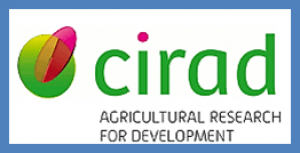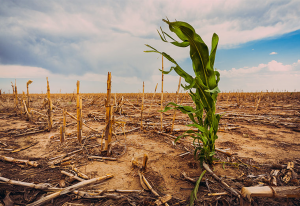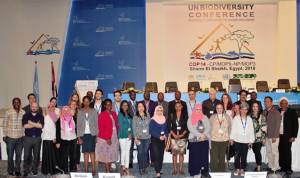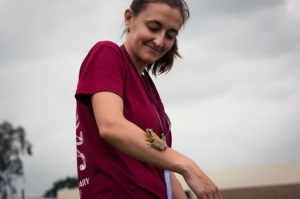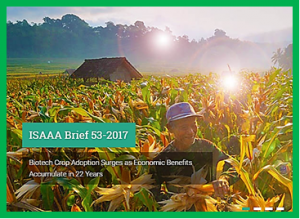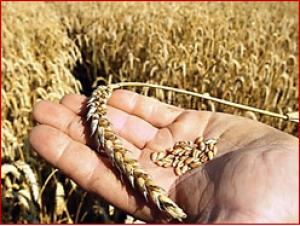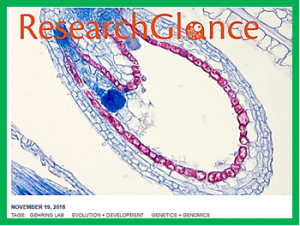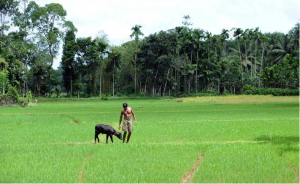Researchers from the Agricultural Research for Development (CIRAD) and National Institute for Agricultural Research (INRA) in France recently showed that inactivating a gene, RECQ4, leads to a three-fold increase in recombination in crops such as rice, pea, and tomato. The gene was found to inhibit the exchange of genetic material via recombination (crossover) during the sexual reproduction process in crops.
The USDA Foreign Agricultural Service Global Agricultural Information Network (GAIN) report on the status of agricultural biotechnology in Colombia has been released. According to the report, Colombia remains open to the adoption of products derived from biotechnology and other innovative technologies. The area planted to genetically engineered (GE) crops in Colombia has decreased due to overall decline in corn and cotton plantings.
Researchers from Washington University in St. Louis led by Richard Vierstra describe the effects of autophagy on the metabolism of maize plants using a uniquely comprehensive set of modern "-omics" technologies. Autophagy is a process that helps break down damaged or unwanted pieces of a cell so that the building blocks can be used again. In plants, autophagy is often associated with aging, or a response to nutrient starvation.
One hundred and ninety-six Governments have agreed to scale up investments for sustainable development and harmonious coexistence of all life on Earth by 2050. This was during the United Nations Biodiversity Conference held on November 17-29, 2018 in Sharm El Sheikh, Egypt. Addressing the convention, His Excellency, Abdel Fattah el-Sisi, President of the Arab Republic of Egypt called for mainstreaming of biodiversity to all economic sectors in order to conserve natural resources for the coming generations.
Having a weed-free rice field is ideal, but not at the expense of nature. IRRI, through the Closing Rice Yield Gaps in Asia with Reduced Environmental Footprints (CORIGAP) project, continues to do cutting-edge research to boost rice productivity while safeguarding environmental health. According to Molly Shuman-Goodier, a CORIGAP-supported PhD student from the Northern Arizona University, amphibians species, such as frogs, contribute a number of beneficial ecosystem services to wetlands and irrigated rice fields.
The Los Baños scientific community came out in full force to welcome Sir Richard J. Roberts, Nobel Laureate in Physiology or Medicine, at his recent conferment of the Degree of Doctor of Laws, Honoris Causa, by the University of the Philippines (UP) for his contributions in the field of molecular biology on November 21, 2018 at UP Los Baños in Laguna, Philippines.
Australia's Office of the Gene Technology Regulator (OGTR) has issued license DIR 164 to Monsanto Australia Proprietary Limited, for the limited and controlled release (field trial) of canola genetically modified (GM) for herbicide tolerance. The field trial (License Application DIR 164) is authorized to take place on January 2020 to January 2024
"We mustn't do what other countries have already done; we must do what no other country did," said Bioceres CEO, Federico Trucco while presenting the HB4 wheat, a transgenic wheat variety with drought tolerance trait. The development started in mid 1990s when Raquel Chan and her team identified the HB4 gene that confers sunflower seed with drought tolerance. In 2003, Bioceres reached an agreement with Conicet to develop it commercially.
Genes determine the variation in plant traits. Different versions of a gene can lead to different traits. However, genes are not the only determinant of such traits, and researchers are learning more about another contributor: epigenetics. Epigenetic factors are things that regulate genes, altering their expression, and like genes they can be inherited from generation to generation, even though they are independent of the actual DNA sequences of the genes.
Two international agencies have urged countries to remain vigilant about the possible re-emergence of the deadly cattle disease called Rinderpest.
Rinderpest was declared eradicated in 2011, making it the first animal disease to be eliminated in the history of humankind. For centuries, Rinderpest caused the death of millions of cattle, buffalo, yak and wild animals, leading to famine and starvation.


 Curently online :
Curently online :
 Total visitors :
Total visitors :
